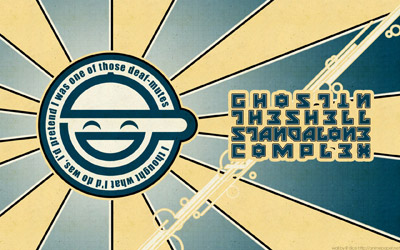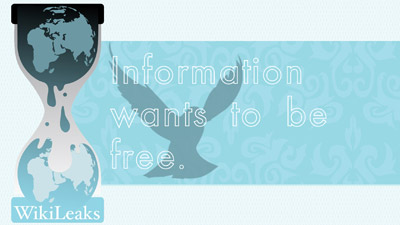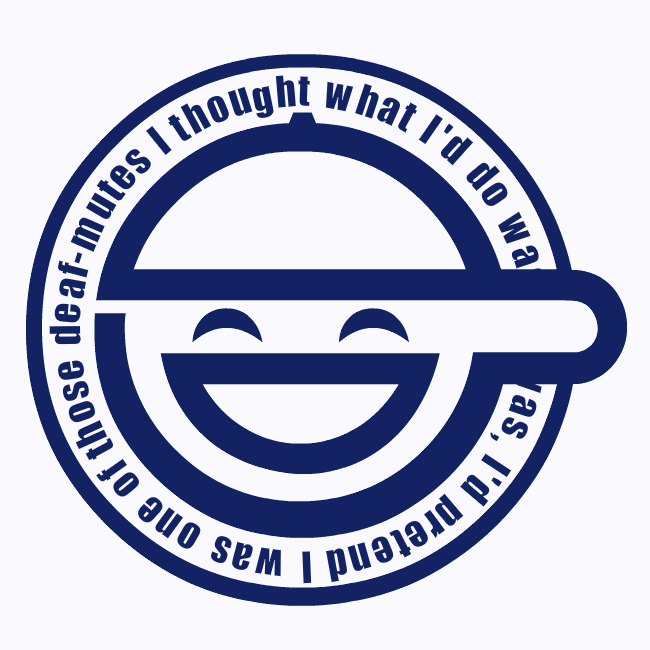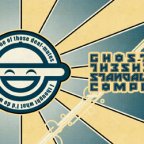WikiLeaks

(Sauce)
“I thought what I’d do was, I’d pretend I was one of those deaf-mutes”
WikiLeaks may turn out to be the real-life Laughing Man. Whether as a hero or villain, it has already secured a spot in history with the release of US embassy cables.
The release of a quarter of a million confidential to secret diplomatic cables will be remembered as another milestone heralding the rise of non-state actors as a major influence on the development of the global order. But is it still too soon for the digital rebel to triumph over the physical establishment?
The leaked cables themselves are so far largely over-hyped, both by its defenders and detractors. The “secret” classification sounds very sensitive but, as anyone who has ever worked in the government would know, it is actually a relatively low security classification. The leaked documents are unlikely to reveal any information that foreign intelligence services do not already know and should come as a surprise only to people who spend all their free time listening to Justin Bieber, assuming they read the news at all to even learn of WikiLeaks.
On the other hand, neither does the leak strengthen the foundation of democracy in any way. Like Tea Partiers who tend to confuse tax cuts with a sound fiscal policy, WikiLeak supporters often mistake anarchy for liberty.
A Force of Anarchy
A completely transparent government is a non-functioning one. Even the most obtuse should see this obvious fact. No supporter of democracy would argue that the Secret Service should publish its security details and shift schedules, or that the Pentagon should publish all its self assessments of its defence vulnerabilities. This is unless you believe that a non-functioning government is the best kind, which makes you an anarchist.
The act of whistle-blowing is an act of desperation that should only follow a systematic failure to address corruption and wrong-doings. It betrays the original duties entrusted to the individual and is the final option when all else has failed. It is the equivalent of sawing off a wounded leg to save the rest of the person — it’s not the first option you should be considering.
What WikiLeaks is doing now — the naive idea that all information should be known to everyone — is thoughtless overkill. So far, I fail to see the systematic corruptions that warrant the cables to be leaked. Where is the smoking gun? (Or the weapons of mass destruction in the parlance of our time.)

Information wants you to stop personifying it
Imagine you are charged with the handling of millions of classified papers. Among them, you stumble across one that details an illegal act perpetuated by agents of the government. You have a moral duty to expose this act. Do you 1) release this single paper, or 2) release all the millions of papers? If you answer the former, you are a whistle-blower. If you answer the latter, you are an anarchist.
This is not to say that I am condemning anarchy as a moderating force of international affairs. After all, the Laughing Man, despite the amount of collateral damage he and his copycats caused, did serve some purpose in the grand scheme of things.
Given that governments everywhere prefer secrecy even when it is not warranted, the rise of an international force of anarchy could possibly serve as a counter-balance.
But on the other hand, it might merely strengthen the case for totalitarian rule. After all, China’s secret files are unlikely to find their way to WikiLeaks any time soon, given that treason is swiftly met with a firing squad. From the US Government’s perspective, it is hard to argue why a leak of secret documents should compel it to become more transparent.
Physical Vulnerabilities
The Internet is still in its infancy. We are far from achieving the full potential of a global information network. For one thing, we don’t have cyberbrains yet.
In this latest episode, WikiLeaks, along with its Anonymous supporters, is holding its ground against the thousand-pound gorilla that is the US Government only because the US remains committed, to varying degrees depending on the particular person in charge, to the idea of democracy and rule by law. (China on the other hand…)
Even so, the US has managed to exert probably extralegal influence on Amazon, PayPal, everyDNS and, according to the conspiracy-minded, the Swedish government to isolate WikiLeaks.
These are the physical weak points of today’s aspiring digital rebels: server infrastructures and human beings. A less scrupulous opponent than the US could have done far more effective damage to those two vulnerable spots.
The effectiveness of digital anarchy in the coming future will depend on the development of technology to overcome these limitations. A cyberbrain may be a good start.
Maybe we can use Kinects to overlay spinning smileys over our faces in real time.
Rooster Coming Home To Roost
As I watch US Senators react like Chicken Little to WikiLeaks, I can’t help but wonder what their reactions would have been if the leaked documents had been Iranian or North Korean.
Would they have condemned WikiLeaks for compromising the national security of sovereign nations? Or would Julian Assange have been presented with a Congressional Gold Medal?
In its almost clichéd pursue of freedoms in foreign lands, the US plays a very dangerous game where it constantly risks getting left behind by its own rhetoric, whether in terms of human rights, environmental protection or economic reform. Unrealistic rhetoric discredits both the content of the message and the substance of the actions, however necessary and well-considered they may be in each case.
But looking at the Tea Party movement, perhaps the train has already left the station. Vapid political jingoism has taken on a life of its own and rational policy-making will have to play second fiddle.
Unreleased Cables
Given that WikiLeaks has so far released only hundreds out of hundreds of thousands of purported cables, it may be too soon to draw a conclusion regarding the amount of good/harm done by this leak.
But looking at the past modus operandi of WikiLeaks and considering the fact that the cables were not released in chronological order but rather have apparently been hand-picked for their gossip-worthiness, I am leaning towards the conclusion that the remaining cables do not expose any massive wrong-doings the way the Pentagon Papers did.
WikiLeaks have had months to go through the cables. If any US Government conspiracy existed in the leaked cables, then WikiLeaks would certainly have highlighted it by now, given its stated goal as a whistle-blowing site.
It’s hard to believe that, in face of significant public dissent, WikiLeaks is for some inexplicable reason holding on to the most sensational and pertinent materials instead of using them to justify its actions.
I may yet be proven wrong. Perhaps WikiLeaks has simply not gone through all the documents yet (which would make it uncharacteristically sloppy). Maybe the next Pentagon Papers are just around the corner.
But when it’s all out in the open and we find out that politician gossips and personal musings are all that we are going to get from this whole fiasco, then WikiLeaks would have done no more than the Daily Mail in keeping governments honest.
Of course, that is not to say the Daily Mail is not good entertainment.
Conclusions
The leaked embassy cables make for interesting gossip and are symbolic of growing individualistic forces at work in the modern international order, but ultimately do not seem to have achieved much and are over hyped by the eager mainstream media.
WikiLeaks, or its descendants/copycats, is capable of much more destructive anarchy as technology improves and more aspects of society are digitized. But for now, it remains at least partially vulnerable to traditional political pressure and its effects, and its access to the people, can still be mitigated by government intervention.
National governments, traditional wielders of political power, are capable of much more direct and sinister attacks against WikiLeaks and its future iterations should they feel the situation is desperate enough. So far, it apparently is not.
As for me, I am still waiting for the Laughing Man.

(Sauce)







December 6th, 2010 at 6:53 pm
1. USia is not a democracy. Or even a civilized nation, for that matter.
2. “No supporter of democracy would argue that the Secret Service should publish its security details and shift schedules”.
Why not ? Just to compare, USian pres. constantly rotates his lairs, has to go around under guard, etc. In Europe – national leaders just go to fucking work. Sometimes alone, and on foot. Think about it.
3. I dont know about anarchy, but its kinda obvious that USian model is failing rapidly, and we’ll all be very lucky if those retards dont elect the ultimate retard to lead them, ending the world in nuclear annihilation, but even in general, i do believe that all this urbanisation and industialisation was not the right path to take. It will greatly inconvenience a person, but the humanity on the whole could really benefit from a neo dark age.
December 6th, 2010 at 7:27 pm
@tome: Could you please clarify what “…all this urbanisation and industialisation(sic) was not the right path to take” means? Sounds like you’re trying to romanticise pastoral living. Also, I think your comparison of the amount of security taken by the American president, compared to other European leaders is somewhat unreasonable- Bigger countries tend to have more enemies and thus warrant more protection. Even if we ignore this trend, your statement that more protection leads to less productivity does not address the argument you are trying to make. Namely: How does being subject to attack warrant more information transparency. If anything, your example has highlighted the need to be discrete when carrying out matters of defence, hence warranty a level of secrecy for government actions.
December 6th, 2010 at 10:03 pm
Fact: Secrets are hard to keep. Cork out of the bottle. post-it-all 1-to:world. Problem ? Just as much the printed book once was. Main question: what’s next: E-Power to the people. Maybe it is good thing, because together we can control what no government can (ie. the global society we need to survive) Technology is a thread, it always was.. it always was unstoppable. So live with this and let’s discuss
December 6th, 2010 at 11:23 pm
When I was watching NHK news last night, I got a distinct Stand Alone Complex vibe, especially when they were talking about the hacking exploits of Assange and the political implications of cablegate. Guess Shirow wasn’t too far off the mark with his scenarios.
December 7th, 2010 at 2:02 pm
I haven’t bothered to go through all the files anyway, but I do find “flabby old chap” to be rather amusing. There isn’t so much value in terms of anarchy as there is lulz.
December 7th, 2010 at 2:21 pm
That’s what it boils down to, the lulz for the commons. DM is right, the only effect WikiLeaks has on those who are in power is to motivate them to create stricter, tougher controls against such leaks. Whistleblowers in the future will find it increasingly difficult to get their hands on incriminating evidence.
For everyone else, (us common people) all WikiLeaks is doing is replacing the usual sitcoms we watch.
December 8th, 2010 at 1:30 pm
@tome
Hm… as an American I am offended. 1. I don’t think you can be elected presidents without being someone first. Second, there is an electoral college in our voting system for a reason.
Oh and on:
“1. USia is not a democracy. Or even a civilized nation, for that matter.”
1. It’s USA not USia….
2. As the great master yoda would say, democracy we are.
3. I think having the best modern military means something. I mean we beat North Korea who spends 40% of its income on military about 5000000000000000000000000000000000000000 times over.
4. Yo! Europe would be one big fat Germany if it wasn’t for us. :D
I don’t know if ur just an angsty teenager, but US is still in good shape. ….
Ah the Russian Federation….
ROFLOLMAO
Russians. Sorry, man for hating on you. I understand your vehement nature against the US. Must be pissed when every single shooting game on a game console potrays your nation as the bad guys: Call of Duty, Battlefield: Bad Company, and VanQuish. XD
December 9th, 2010 at 11:33 pm
Hahaha, Tome is trolling. Cute.
Nice response, there, Poro.
I think the “USian” was to make it look more like “Russian?”
Yet again, I find my sensibilities completely in line with Darkmirage. If I ever become a zombie, I’m heading straight for Singapore for some o dem delicious brains.
December 10th, 2010 at 4:09 am
Well looks like the Europeans aren’t amused by all of this either. They pretty much sync up with your points about the hypocrisy of it all.
http://www.nytimes.com/2010/12/10/world/europe/10wikileaks-react.html?ref=global-home
December 12th, 2010 at 8:28 am
I like the reference to the Laughing Man. Wiki Leaks is trying to reveal the “secret” cons of the US, but there wasn’t been much bad doing reported in the leaks. It’s not like the FDA was promoting a useless cancer drug (instead of a useful one). A leak like civilian deaths caused by air strikes is a significant report, but not surprising. Civilians are always killed during conflicts. News of civilian death is important, so this is why I support Wiki Leaks. I also agree with you that the Leaks are too hyped by the media and the US.
December 15th, 2010 at 2:21 pm
Well, obviously you fail to comprehend what Wikileaks is all about. The diplomatic cables are only a small fraction of what they released. I recommend to read this article: http://zunguzungu.wordpress.com/2010/11/29/julian-assange-and-the-computer-conspiracy-%E2%80%9Cto-destroy-this-invisible-government%E2%80%9D/ so you might get a better understanding of what Julian Assange and his colleagues are trying to do. Anarchy has nothing to do with it.
Your intellectual ability must be ridiculously limited if you seriously believe that the diplomatic cables are just “gossip” and the current political system of the USA and most other western nations “democratic”. You also reveal the logical fallacy of your reasoning by comparing the reaction of the American government to that of China, Iran et cetera. China is not (yet) a democratic country, but the USA call themselves a democracy. Democracies must be held to higher standards, and especially their very own standards i.e. the constitution.
Ironically China is indeed making progress to a more open society as you can read here: http://cmp.hku.hk/2010/10/13/8035/ So this makes your sinophobia look as what it is: biased, ignorant and uneducated. I realize you might tell me about the oppression of “peaceful monks” and the “exploitation of workers and peasants”. Well, I don’t care, because my world view is not shaped by corporate media and these issues are a lot more complicated than you probably imagine. Anyone who wants a more somber picture of China should read this: http://original.antiwar.com/justin/2008/03/26/why-they-hate-china/
Anyway, in the end Wikileaks is not an American but an international organization, so it’s not their responsibility (neither morally nor legally) to take care of the security of American secrets or institutions. Americans who scream “traitor”, “information terrorist” and the like only display their ethnocentric perception of reality.
December 15th, 2010 at 9:01 pm
I think you misunderstand the term anarchist. I did not say that anarchy is necessarily a bad or wrong thing in this case, but I am merely pointing out the facts. If your idea of democracy is a government where every citizen knows about everything, then unfortunately there will never be such a totalitarian democracy and you fight an eternal battle.
I also find it interesting that you can criticize democracies for failing to live up to your naive standards of perfection, while in the same breath praise China for negligible improvements. I was born in mainland China and my entire extended family lives there. I can tell you that you are an idiot for believing in fairy tales simply because they happen to fit with your ideology.
We are talking about a country that shuts down a phone line within minutes after you send out a SMS containing censored information such as a person’s name. If you support WikiLeaks’ purported goals even the tiniest bit, you will see that I am not the sinophobe here (I don’t hate myself), but rather you simply have an unjustifiable bias against Western democracies. You are praising China because a tiny group of retired politicians and intellectuals published a letter calling for political reforms.
See, in China they can simply block out all foreign media and mentions of WikiLeaks online. This is a much more efficient way of solving the problems and I do not see them changing their methods any time soon. The US executive government in the meantime has to actually struggle to find a ridiculous law and bring Assange to court where he will promptly be found innocent by any decent judge.
WikiLeaks wants to fight government conspiracies by making it costly and difficult to keep secrets. I will agree that the spectre of such a leak serves as an interesting international political force that can perhaps influence policy-making for the better.
But I feel obligated to point out that Assange’s base assumption – that authoritarian government are non-linearly damaged by leaks compared to open ones – is technically true but practically meaningless because he fails to take into account of the fact that open governments are also non-linearly more vulnerable to leaks. Hence, leaks may harm authoritarian governments more if they happen but make open governments want to be more authoritarian so that they don’t happen.
Incidentally I do not live in the US and I am not a citizen of that country, so I don’t understand your point about ethnocentrism. Maybe you are projecting your assumptions.
December 20th, 2010 at 5:08 pm
I don’t think the real problem here is about Wikileaks. Though some people disagree with their tactics (myself included), there are times where I must admit that they can do good. The reason that so many Americans are upset about the recent leaked cables is that the cables were truly insignificant. There was nothing really gained from the leak. It appears that the entire event was just a malicious attack against the United States.
I find it interesting that so many people are talking about the responses of American politicians. The charged statements against Wikileaks are just political maneuvering. The majority of the American public was outraged at this event, so the politicians issue fiery rhetoric to appease their constituents who control the politicians’ future, because we are a democracy. Also, the release of those cable shows a flaw in American security and the people want to know that their government is doing something and rhetoric helps alleviate those fears.
I am really curious that people do not consider the United States a democracy. This is probably the American in me speaking, but I would say we are the most democratic country in the world if you consider a representative democracy democratic. We follow the system to a fault. The ineffectiveness of the American government is because our politicians represent our people. People from West Virginia are different than people from California, so they would send different people to Congress. There is no surprise when these two Congressmen disagree, but this is how the United States has ran for the last two centuries. The Federal Government has always been slow, but now these inefficiencies are highlighted by a 24 hour news media.
This is a factless opinion on my part, but I don’t think any other country has to deal with so many different backgrounds and try to mesh them together to form a functioning government. If there is another country like that, I doubt they are committed to making sure everyone has the same rights and that the minorities are protected. It wasn’t easy uniting so many different people; the Civil War clearly shows that. What is most surprising is that somehow this was able to work. I believe that the animosity against the United States comes from the fact that we’re currently the strongest country in the world and we like to push our ideas on people, even though they rarely take. I see that many people here represent multiple countries, and my quest to you is who do you want to see as the world superpower? I think the United States has done a good job; I’m sure most of us would agree that Nazi Germany was bad and so was communism. The one country we have screwed over the most is ourselves. We’ve paid for our mistakes in Vietnam. Even though I support our current wars in Iraq and Afghanistan, we’ve paid for that too. I know other countries have joined in but we pull most of the weight. I don’t know why so many people from other countries are angry at the United States when we have to bury our soldiers and have increased our debt to a ridiculous number.
December 25th, 2010 at 1:23 am
Grey, while I definitely think that the US is a democracy, I don’t see why its people believe think that it is the most democratic. There is no evidence of this.
Third-party candidates stand no chance in the electoral college system, resulting in politics revolving around two-party false dichotomies. How can the system be the most democratic when the people can only choose between two options?
The US also falls consistently behind European nations such as France and Germany in voter turnouts, so apparently American voters aren’t that excited about it either.
December 25th, 2010 at 10:26 am
As an American and a member of the military this is not a big surpise, it was going to happen sooner or later
Ok, the things that were told to the world are NOTHING NEW
1. The Russian Federation is run by Putin, well who did not know that
2. US diplomats talking crap about other world leaders, give me a break
there were no big secrets told, I am telling you guys ASSange would have been dead if he had any REAL US secret.
PFC Manning is a dead man, I hope he is executed but I am pretty sure he will get 60 years in jail
December 27th, 2010 at 11:59 am
Dark Mirage, I would say that it is impossible to provide universally excepted criterions to determine what country is the most democratic. Each country develops in its own way to solve specific issues those people face. Reasons I use to rate the American Democracy would be the United States’ long history of stability and our effect on global democracy.
The US is a self formed government. No other government told us what to do and how to do it. The US was also able to unite distinctive states with their own government and identity into a functioning federal government. There has only been one restructuring of the federal government and that was when the Articles of Confederation were replaced with the Constitution. There has only been one rebellion of considerable worth and that was the succession of the South, which eventually was brought back into the union. The US has found a balance of power between the Executive, Judicial, Legislative branches of government and also the development of a powerful military with little to no political ambitions as an organization. The greatest social issues this country has faced have been able to be resolved in legal manner. Though change might take awhile, it does eventually happen. The United States has been a key player in advancing democracy in the world and is a big reason why democracy is considered to be the best form of government.
Though the US has many accomplishments, there are some issues with the way that American Democracy is practiced that you have pointed out. There was the point on how there is only a choice of two political parties. I would say that you are wrong in your conclusion. A person has to face multiple elections before they can take the position. There are easily at least four people who fight in primaries or caucuses to get their party’s spot in the general election. The person who gets the party’s blessing is the one who was voted for by the members of the party. Then the person has to face the person that the other party found as the best choice. The presidential primary is even more crazy. A person has to win a primary in probably around 30 states to guarantee the candidacy; depending on which states they won and which party they belong to because each party do their primaries differently. This process includes the people in the weaning out of the candidates and I believe is very democratic. The only people who don’t usually deal with primaries are incumbents. They would have to do something big for their party move against them, though it has happened.
I don’t know what to say about voter turnout. That is a problem the US is but people don’t really know why. There are multiple theories as to why it happens. I would say a big reason for the discrepancy between the US and Europe would cultural differences and different fears of the federal local and federal government, but this is all speculation.
I have to say again that this is all opinion and that I am not fully educated on the ins and outs of other democracies. I must say that I have thoroughly enjoyed myself in writing about this and I’m really interest in what your opinions and critics about my points are. If you have country which you believe is the most democratic, please tell me. I would also like for you to explain what you meant by “two-party false dichotomy.” I think I know what you mean but I’m not sure.